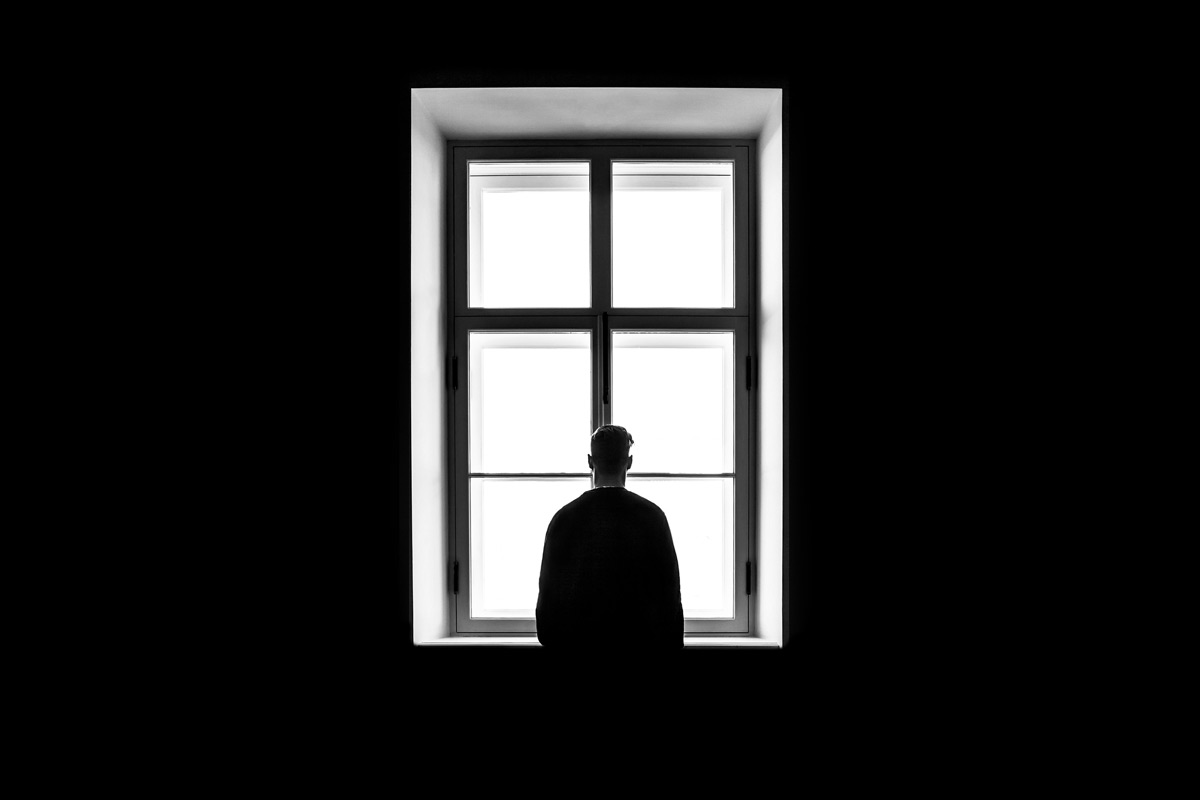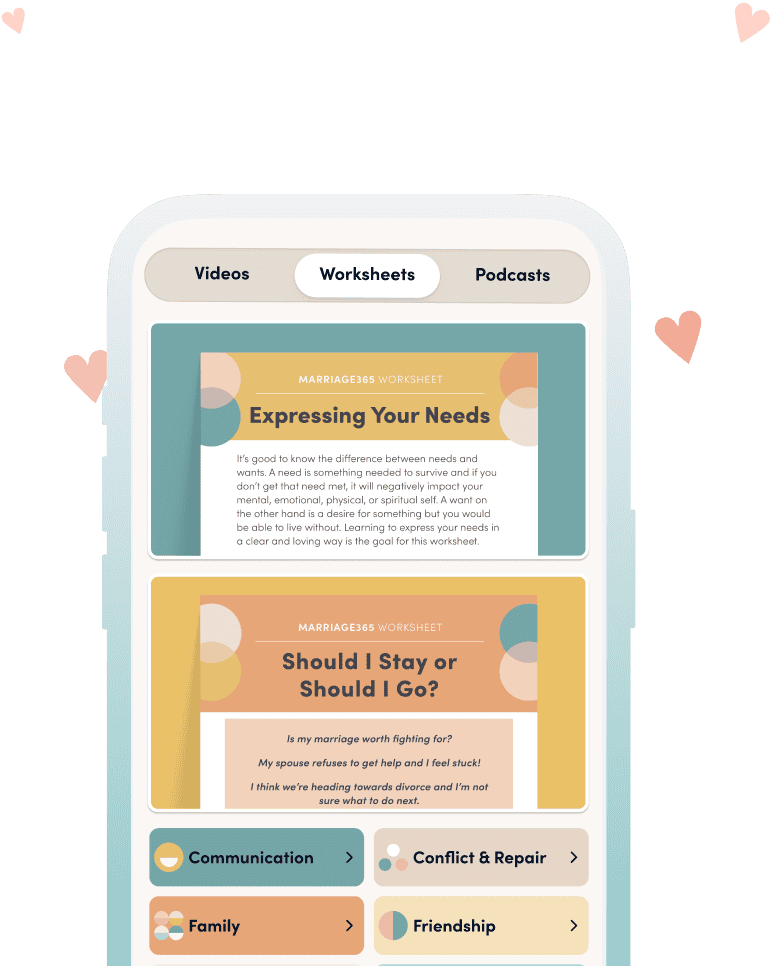No one gets married expecting something like crippling depression to dig in its dirty claws and wreak havoc, but it happens all the time, to all kinds of different people… most of them unsuspecting, or believing it could “never happen to them.”
When it hits, it can feel paralyzing and cause its victims to feel no interest in the things they normally love, being fully and physically present, but mentally ‘checked out’ from the world around them. Depression has the power to convince someone that they are hopeless and have no options; it whispers to them in the darkness that they are isolated from their family or community and that they are suffering completely and utterly… alone. If your loved one is suffering from depression, you may feel equally as alone and helpless as they do. You are recognizing that they aren’t themselves, but unsure of the next steps to help them get onto the road to recovery or even how to help them see how much they mean to you or how much it hurts to see them down so low.
Depression can present itself for all kinds of reasons, so the most important thing you can do when it comes to depression, whether you might be experiencing it or you believe your spouse is experiencing it, is to educate yourself. For example, it’s important to recognize that there is a difference between intense sorrow and genuine, full-on-diagnosable depression. Oftentimes when a person faces a tragedy it is natural (and healthy!) for them to experience a season of heavy, heavy sadness or sorrow. However, this heaviness becomes diagnosable and crosses over into depression when it starts to affect a person’s daily life and overall well-being. When they stop taking care of themselves and are unable to even pull themselves out of bed; when they lose their appetite and find that they aren’t able to eat; when they can’t focus on projects or tasks or things that would normally come with ease.
Working through a season or a long-term diagnosis of depression takes both spouses to be on board with an action plan; no one is meant to do life alone, and battling something like depression is possible, and also much more effective when you have a support system by your side. Letting depression go untreated is dangerous and can lead to life-altering decisions such as self-inflicted harm or suicide.
Depression can be very serious and needs to be considered as such by both spouses.
With that said, we are here to help and wanted to give you some tips for you and your spouse to follow if depression is inflicting your marriage:
If you are depressed:
Educate yourself. You need to understand how depression is affecting your brain and your decision-making abilities. Once you understand how the ‘logic processing’ part of your brain and the ‘emotional processing’ part of your brain are conflicting, you will be able to make better and more informed decisions, despite how you might feel.
Speak up and ask for help. I know you might currently be feeling like you don’t want to ‘bring down’ anyone else in your life by sharing your burden with them, or you might even find yourself feeling like you just don’t care enough to use your words, but for your well-being and for the well-being of your spouse, friends and your family, to the best of your ability, you need to speak up and let someone know that something isn’t right and you need help. Further, please make sure that either you or your spouse sets up a professional counseling appointment so that you can start to work through what’s going on and set a plan to feel better.
Set small and realistic goals. Right now, you need to focus on realistic baby steps. Setting grandiose goals for yourself will only overwhelm you and make you feel discouraged. Set a small goal for yourself every day, something like getting out of bed and taking a shower or eating at least 3 small meals a day. Maybe it’s even that you step outside and get 10 minutes of fresh air. Whatever it is, set those reasonable goals for yourself so you can experience some ‘quick wins’ and feel encouraged about the progress you’re making. Every. Single. Step. Counts. ❤️
If your spouse is depressed:
Educate yourself. We cannot express this enough. Your spouse is not currently in a place to fully mentally engage in their well-being, so you need to step in, and the only way you an do that successfully is by doing your research and figuring out what your role is in this new season. Find a reputable source and carve out time to read and learn. Call a counselor or life coach and talk to them about your concerns. Call your spouse’s doctor and ask about what you can do to help or what your next steps should be. Ask questions and don’t stop until you get real, solid answers. Your spouse needs you and if the table was reversed, we could only hope your spouse would do the same for you.
Practice empathy. When you’re not the one who is depressed, it can be difficult to truly understand what your spouse is going through or why even small tasks seem impossible for them to accomplish. Once you have done your research you will learn that depression interferes with the way that the logical processing part of your brain communicates with the emotional response part of your brain and you’ll see that your spouse literally is not processing anything on the same level that you are. Small things currently feel like mountains to them, and so therefore… they are. Your sole responsibility at this point is to use empathy to validate your spouse where they’re at and help them to both recognize and own their feelings so that they can begin to retrain themselves to use their logic skills as well. If you undermine their feelings or accuse them of being overly dramatic, they’ll only spiral deeper into crippling depression and feel more alone. Take their hand and walk with them step-by-step until they can see the light at the end of the tunnel.
Take action. To be blunt: right now your spouse is unable to properly care for themselves and they need your help to do that. You can see what’s physically going on better than they can, so therefore, it would be helpful if you would take some initiative to step in and help. Do whatever you can to make sure that your spouse is eating healthy meals and exercising. Even if that means you have to do the shopping and cook for them and you are the one suggesting you go on a walk just around the block before bed to get some fresh air. It would be enormously beneficial to your spouse and your marriage, as well. You might even need to be the one who calls and makes the initial therapy appointment for them and the one who drives them to that appointment and sits in the waiting room with them. Be emotionally available and physically present. Don’t just sit by and plead with your spouse to get help. Step up and help, however you can.
Depression is running rampant in our society today, and we believe it’s largely due to a lack of community. Due to technology and a decline in real, physical human interaction more people feel alone and isolated. The ‘bar’ is raised to an all-time high and comparison is truly at every turn. We need each other and we are truly better together. If you are depressed, I encourage you to find someone safe and reach out your hand. And if your spouse is depressed, I encourage you not to turn a blind eye and let them suffer alone.
Connection kills isolation. Connection kills hopelessness. Connection breeds trust, hope, love, relationship, and community. We all need each other. We cannot and should not have to do this life alone.
Watch our interview with psychologist Robyn Bettenhausen, where she gave us an in-depth perspective on depression. She shares important and helpful suggestions for people who feel like there isn’t hope.
Written by Anna Collins
Anna Collins lives in sunny Southern California with her husband and two children. She is passionate about her marriage, staying at home with her kids, writing, coffee, good conversation, and game night. Her life dream is to someday write a book and see it published.







